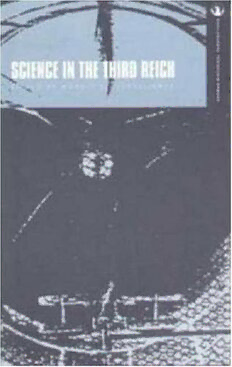
Science in the Third Reich PDF
298 Pages·2001·1.403 MB·English
Most books are stored in the elastic cloud where traffic is expensive. For this reason, we have a limit on daily download.
Preview Science in the Third Reich
Description:
How true is it that National Socialism led to an ideologically distorted pseudo-science? What was the relationship between the regime funding 'useful' scientific projects and the scientists offering their expertise? And what happened to the German scientific community after 1945, especially to those who betrayed and denounced Jewish colleagues? In recent years, the history of the sciences in the Third Reich has become a field of growing importance, and the in-depth research of a new generation of German scholars provides us with new, important insights into the Nazi system and the complicated relationship between an elite and the dictatorship. This book portrays the attitudes of scientists facing National Socialism and war and uncovers the continuities and discontinuities of German science from the beginning of the twentieth century to the postwar period. It looks at ideas, especially the Humboldtian concept of the university; examines major disciplines such as eugenics, pathology, biochemistry and aeronautics, as well as technologies such as biotechnology and area planning; and it traces the careers of individual scientists as actors or victims.The striking results of these investigations fill a considerable gap in our knowledge of the Third Reich but also of the postwar role of German scientists within Germany and abroad.
See more
The list of books you might like
Most books are stored in the elastic cloud where traffic is expensive. For this reason, we have a limit on daily download.
